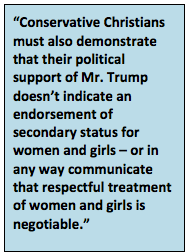 There’s not one woman or person of color on the executive committee of GSEC, the Greater Sacramento Economic Council, the region’s premiere economic development organization.
There’s not one woman or person of color on the executive committee of GSEC, the Greater Sacramento Economic Council, the region’s premiere economic development organization.
That doesn’t make good business sense. It’s not a great way to market the region. And it certainly doesn’t advance the cause of reflective democracy.
Former Mayor Kevin Johnson, an African American, launched the formation of GSEC several years ago, but he no longer serves on the board, having stepped down when he left public office.
According to the GSEC website, the “organization spearheads community-led direction to retain, attract, grow, and scale new businesses….”
Given the “community-led” claim, the composition of the GSEC board – which includes an executive committee and both private and public sector board members – is surprising.
Not only is the GSEC executive committee all-white and all-male, all of the 26 private sector directors profiled on their website are white and only 4 are women (15%).
(GSEC’s public board members aren’t analyzed here, as they hold their positions by virtue of their offices. For example, Darrell Steinberg serves on GSEC because he’s Mayor of Sacramento.)
How did such homogeneity happen in one of the nation’s most diverse regions? Particularly since GSEC’s promotional materials boast that “Greater Sacramento ranks 9th in racial diversity” out of the 25 largest metropolitan areas.
Based on interviews with GSEC staff, it’s clear that the board’s lack of diversity is due to two features of the organization’s business model.
First, GSEC is financed with sizable donations from local companies – and their CEOs are required to serve on the board so that GSEC can benefit from the CEOs’ business acumen.
Because boards that result from this standard recruiting practice typically lack diversity, economic development experts have coined a phrase to describe them: “white guys in ties.”
Second, GSEC staff see their organization as a start-up, with a priority focus on marketing, making payroll, and delivering on agreed-upon “metrics.” Diversity will be a priority – once the results start rolling in.
It’s time for GSEC’s leaders to rethink their business model.
By requiring executive committee and private sector board members to make financial contributions of $50,000 to $100,000 per year, the GSEC board ends up looking nothing like the community it markets throughout the state and nation. And this pay-to-play approach overlooks and underutilizes the skills, perspectives and connections of leaders who don’t have the financial resources to buy a seat at the table.
In fact, there’s something fundamentally disturbing about an organizational strategy that banks on “white guys in ties” to build success.
That’s because it perpetuates stereotypes of women, people of color and LGBTQ as second-tier leaders – good at follow up but a just a tad deficient in that vision thing.
The business model also buys into the notion that financial wealth is the best signifier of success, and thus undervalues leaders whose success is built on knowledge, community-organizing, and nonprofit leadership.
Don’t jump to the wrong conclusion: GSEC’s “white guys in ties” deserve our appreciation for their financial and leadership contributions.
They have something to offer, and indeed are some of “the best we have in Sacramento,” as described by then-Mayor Johnson at GSEC’s inaugural press conference in February 2015.
But other leaders – with different backgrounds and skill sets – are an equally important part of the emerging economic tapestry that makes up Sacramento.
Two recent and well-designed studies – one by high-powered consulting firm McKinsey and Company and the other by the Credit Suisse Research Institute – point to the benefits of diversity. McKinsey found that “boards with diverse executive boards enjoy significantly higher earnings and returns on equity.”
According to Catalyst, an international nonprofit that conducts research and training, “Workplace diversity can lead to increased revenues, reduced costs, greater innovation, and increased employee engagement, productivity, and commitment. But in order to reap these benefits, organizational leaders must clarify the connection between their diversity efforts and their business goals.”
So what should GSEC consider to reconfigure its board to benefit from the diversity of our region’s leaders?
Not all executive committee and private sector board members should be required to make a financial contribution.
Why not add a successful consultant who specializes in economic development, business marketing or public relations?
Or engage the head of a large, membership-based nonprofit who could help reel in a similar organization to be based in California’s center of advocacy.
Or perhaps the region’s ethnic chambers of commerce should have a voting seat at the table, as should a group like National Association of Women Business Owners or some other women’s business group.
Progress may be underway.
In an interview with GSEC staff, they shared that a woman is considering a position on the executive committee, but hasn’t yet made a final decision to join. Plans are also moving along to add a “young professional” position to the board, likely to be filled by an African American leader.
GSEC staff seem well-intentioned — so I’m hoping this is the beginning of real change.
One thing is clear: To effectively represent and market our diverse region, to truly benefit from the “best we have in Sacramento,” GSEC needs more than “white guys in ties.”
 The upshot? Progressive California is falling short.
The upshot? Progressive California is falling short.


